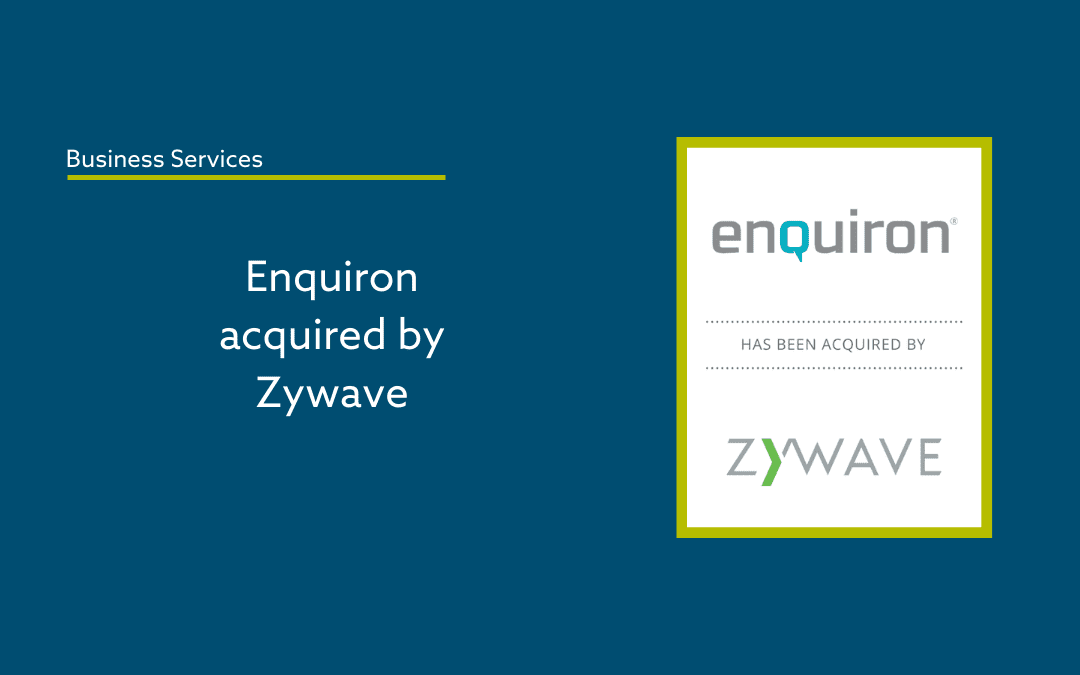The COVID-19 pandemic dramatically disrupted the workplace. From a shift to remote work, to unprecedented talent shortages, to demands for more human-centered cultures, organizations face mounting pressures that make it exceptionally challenging to manage their human capital.
For companies that provide innovative technologies to address the human capital management (HCM) challenges of today’s new workforce ecosystem, it’s a great time to attract a buyer willing to pay a premium to acquire the business.

Featured Transaction:
The Forbes M+A Group Advises PayReel on its Partnership with Seaside Equity Partners
Why the HCM Software Market is Booming
The global HCM market is forecast to expand at a compound annual growth rate (CAGR) of 9.1% over the next seven years, creating a market of more than $46 billion by 2029. That’s not surprising, given the macro trends fueling demand for these services and a surge in the number of suppliers with HCM offerings, especially tech-enabled HCM solutions.
It’s more complex than ever to recruit, retain, and engage top talent while adhering to evolving regulatory and compliance requirements. The Great Resignation has left many positions vacant, and candidates bring greater demands for more flexible work arrangements and higher salaries. As workforces become more dispersed, organizations must juggle the challenges of managing across on-site and remote teams, keeping remote employees productive and engaged, and complying with a wide diversity of employment-related state statutes. And while the rising gig economy is helping organizations tap alternative options at a time of intense competition for talent, this approach adds administrative and regulatory complexity.
Meanwhile, the HR team itself is likely understaffed, leaving fewer professionals to handle a growing, complicated workload. Trying to do it all internally has become nearly impossible.
The HR technology that was already evolving before the pandemic has now hit an inflection point, providing robust solutions—often powered by machine learning or artificial intelligence and delivered via the cloud—to help organizations meet a wide spectrum of HCM needs. Both sophisticated applicant tracking systems and technologies that accelerate high-volume hiring and screening, improve video interviewing, provide comprehensive workforce management, handle complex payroll needs, enhance employee engagement, and much more, the broad category of HCM offers niche solutions for every aspect of managing human capital.
Why HCM Acquisition Deals are on Fire
The same market forces making HCM increasingly complex are creating disruptive business models, practices, and technologies—attracting intense M&A interest. As sought-after as HCM technology companies are by customers, they’re equally sought-after by private equity (PE) groups and strategic buyers that recognize significant growth opportunities.
In fact, the past year was one of the biggest years for HCM technology investment. As fast as HCM technology has advanced, it’s continued to attract a surge of institutional capital into this space and created unprecedented demand to deploy that capital through acquisitions. Savvy investors recognize that businesses positioned to address the post-pandemic challenges and changing dynamics of HCM have the potential to generate significant returns.1
Not surprisingly, suppliers with game-changing technology that can transform HCM—removing pain points, reducing administrative burdens, and eliminating available HR talent as a limiting factor—are being courted aggressively by buyers. Some acquirers of HCM software providers are looking to add new technologies that will differentiate them in the market; others seek entirely new business models that expand and diversify their revenue streams.

Positioning HCM Software Businesses to Sell
While tech-enabled HCM companies are ripe for the picking, they still need to do some work to position themselves to sell at a premium. One of the biggest potential stumbling blocks is shifting the business owner’s mindset to focus on the differentiators that are most important to an acquirer, not a customer.
For example, HCM software providers often tout the quality of their services and the knowledge and expertise of their staff when marketing their solutions to customers. But other factors are much more appealing when it comes to attracting a buyer for the business.
Services businesses don’t tend to trade at very high multiples, in part because the barriers to entry are relatively low. But a tech-enabled HCM company is a whole different animal. Their business models are more compelling and more scalable, the entry barriers are higher, and they often have more enduring customer relationships since there is a high cost for switching providers, making the service very sticky.
The latter is especially important when positioning an HCM technology business to sell. Though many founders don’t view the business this way, tech-enabled HCM companies often operate much like a SaaS (software-as-a-service) model with recurring revenue. By demonstrating that the customer is highly unlikely to switch once they’ve adopted the HCM technology, skilled investment bankers can help the business demonstrate a high degree of stickiness and overcome the perceived revenue risk of holding large contracts with a small number of customers.
How Forbes M+A Guides HCM Tech Acquisitions
If you’re considering selling your SaaS or tech-enabled HCM business, you want to achieve an exceptional outcome. A highly successful HCM software acquisition demands an HCM transaction advisor that knows this space well and has a track record of achieving extraordinary outcomes for leading companies that offer unique, industry-first HCM software solutions.
That’s why leading tech-enabled businesses partner with Forbes when they’re ready to sell. Our investment team brings extensive knowledge of the HCM market, the institutional investors that seek HCM companies, the forces driving demand for tech-enabled HCM businesses, and what it takes to extract a premium for top companies in this space.
Our team analyzes an HCM software company’s revenue streams, compares them to both their peers and other businesses with a SaaS model, and determines whether we can position the company as a true SaaS model with recurring revenue. We also engage in preemptive discussions with the types of buyers most likely to acquire a tech-enabled business, driving intense competition that increases the sale price and terms.
That’s how we recently helped PayReel, provider of a cloud-based platform for companies that rely on contingent workers, achieve what it described as “remarkable results” in its partnership with PE firm Seaside Equity Partners. And it’s what drove an exceptional outcome for Enquiron, a leading provider of cloud-based software solutions that employers use to manage people-centric risks, in its sale to Zywave.
To learn how we can help your tech-enabled HCM business capitalize on tremendous demand in the capital markets, contact The Forbes M+A Group.

